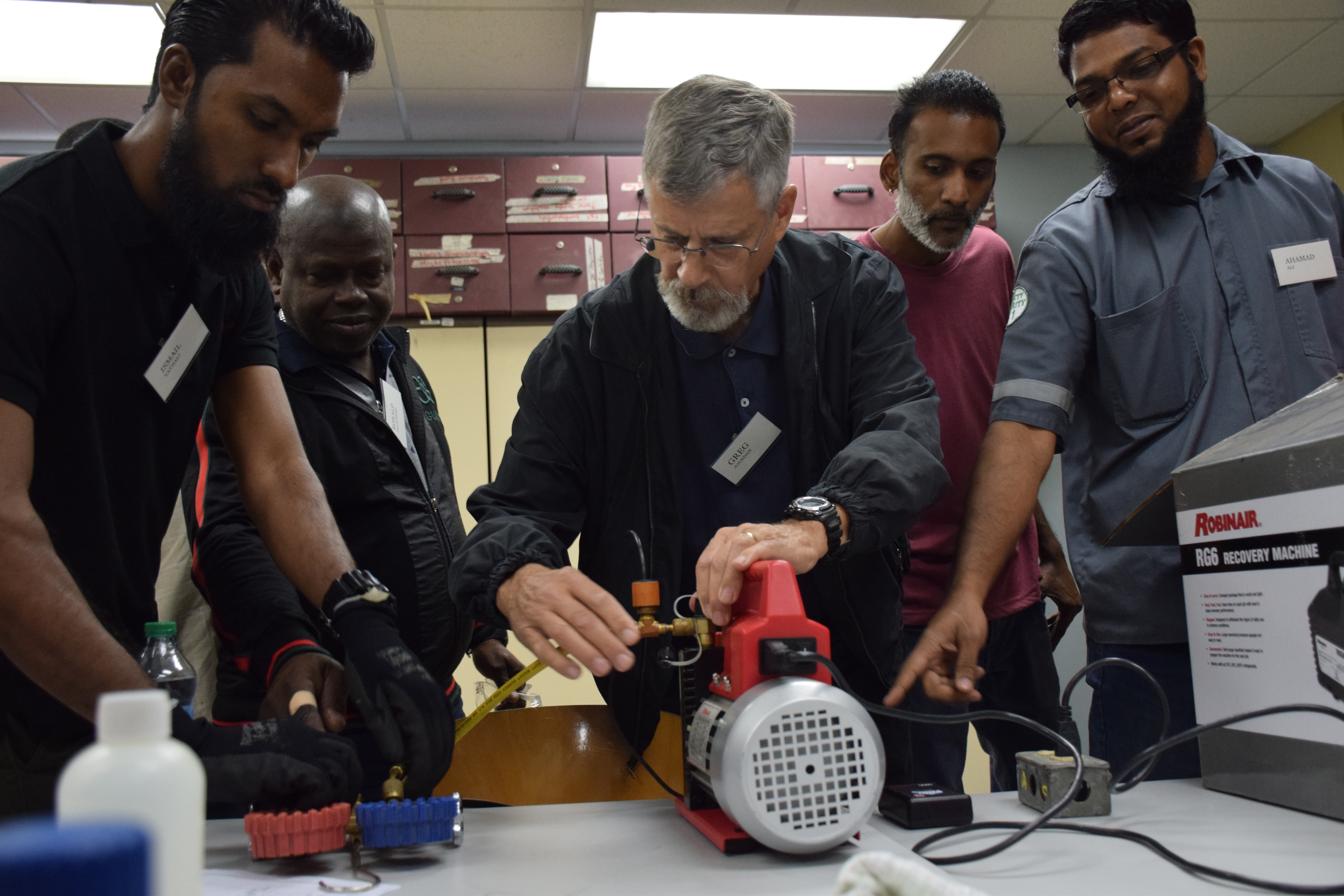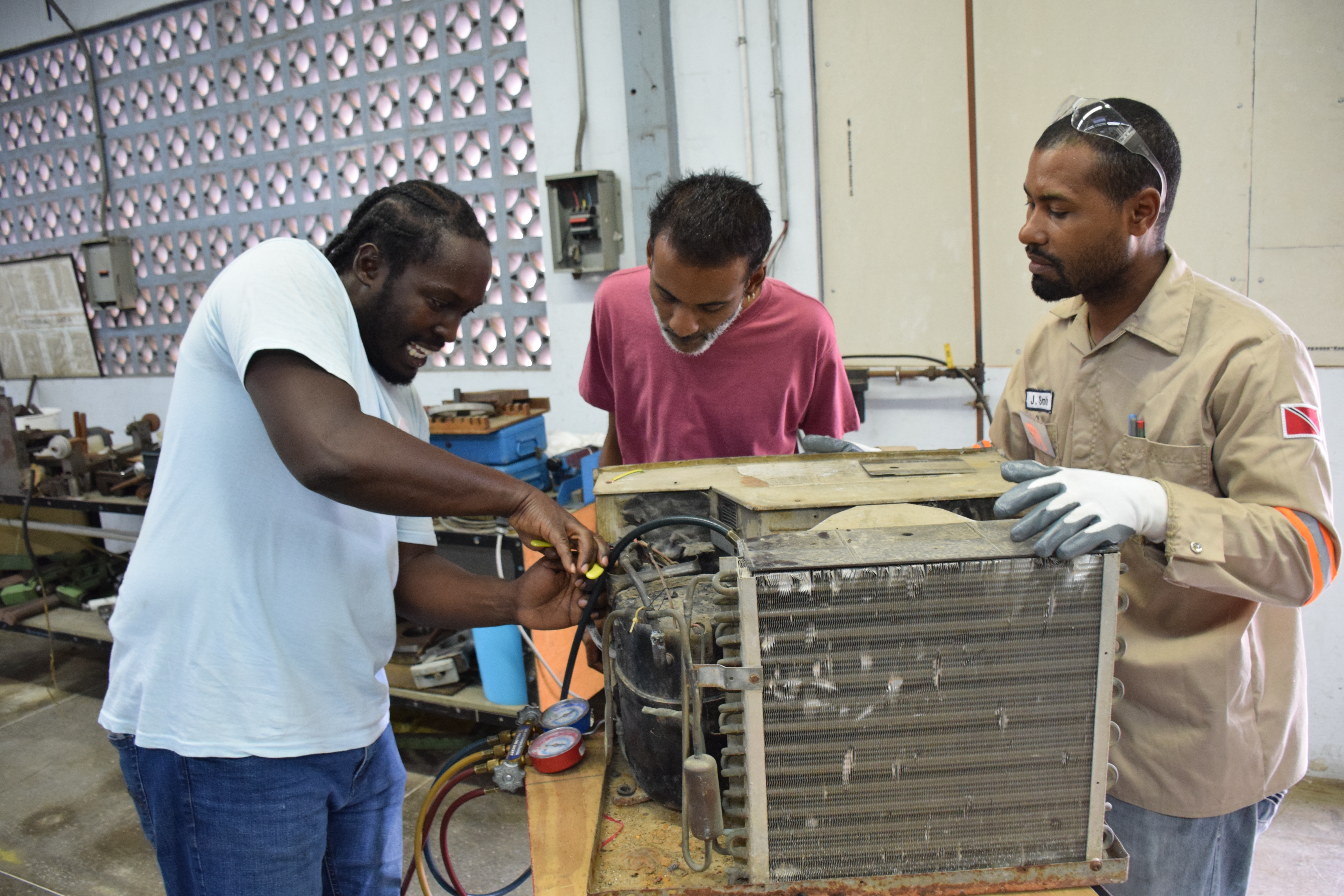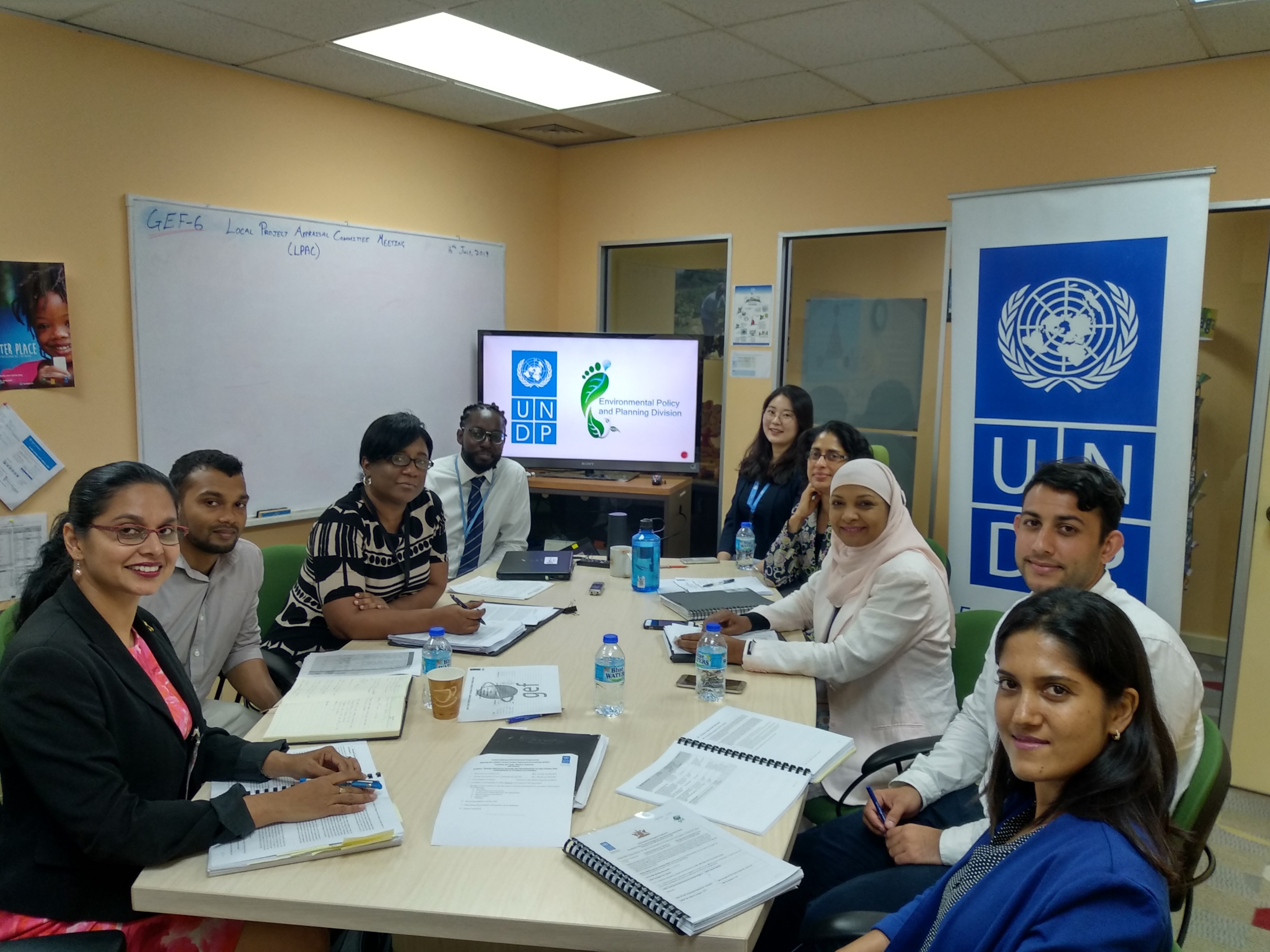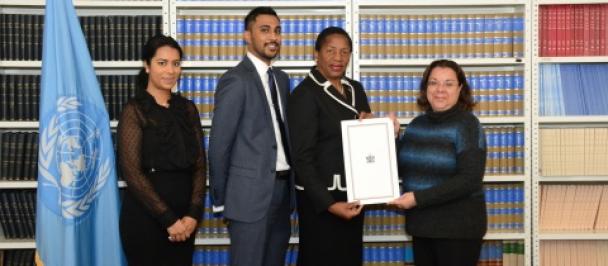Representatives of T&T’s refrigeration and air conditioning sector test out some modern equipment.
Following the signing of an agreement last week (18 June 2020), a new US$5.5m national project to develop low-carbon refrigeration and air conditioning technologies that reduce greenhouse gas emissions, is now underway. The project is part of a wider partnership programme between the Government of the Republic of Trinidad and Tobago and the United Nations Development Programme (UNDP), in support of the country’s international commitments to combat climate change.
The Energy Efficiency through the Development of Low-carbon RAC Technologies project, funded by the Global Environment Facility (GEF) - is one of several sustainable energy and environment programmes being managed by the UNDP on behalf of the Government, working closely with the Ministry of Planning and Development. The projects support national priorities in the energy, environment and disaster risk reduction arena by strengthening environmental policy, regulatory and institutional frameworks; developing energy efficient technologies, practices and public education; and supporting greater disaster-risk resilience
Working with a diverse group of stakeholders, including public agencies, academia and civil society organisations, the long-term goal of the GEF project, is to address the use of ozone depleting substances within the refrigeration and air conditioning (RAC) sectors, both public and private, and to contribute to the stated national goal of a 15% reduction in greenhouse gas (GHG) emissions by 2030.
The project aims to address Trinidad and Tobago’s international commitments under the Montreal Protocol - an international treaty to protect the ozone layer by phasing out the production and consumption of numerous substances that are responsible for ozone depletion and the United Nations Framework Convention to Combat Climate Change (UNFCCC) which is designed to address global warming by reducing carbon emissions.
Other UNDP / GoRTT collaborations include the European Union (EU) funded, Global Climate Change Alliance Plus (GCCA+) Trinidad and Tobago initiative, which will seek to promote a transformative green economy, establishing solar energy systems at sites across both islands, strengthening and implementing relevant policies and institutional frameworks; and promoting the benefits of renewable energy and energy efficiency practices.
Additional collaborative projects are aimed at relevant capacity building and institutional strengthening to enable Trinidad and Tobago to meet its obligations under Multilateral Environmental Agreements (MEAs) - international conventions and treaties on the protection of the environment and natural resources.
Updating the skills and equipment of the sector to provide more climate friendly services and awareness.
Members of the Local Project Appraisal Committee, reviewing the GEF RAC Technologies project.

 Locations
Locations


